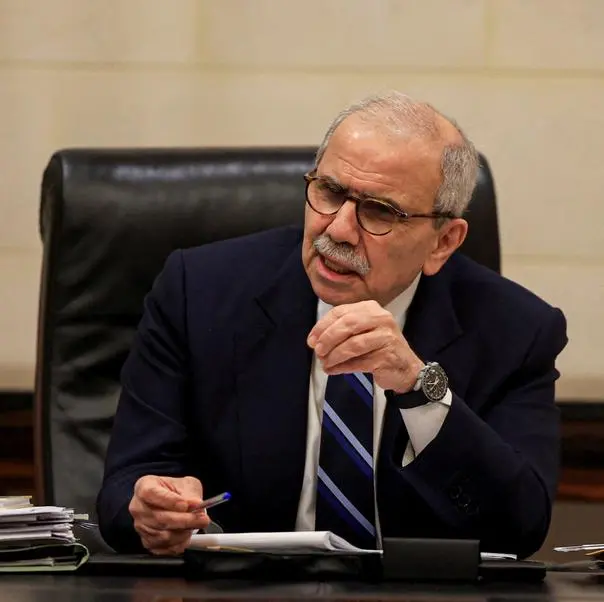PHOTO
The current president of the Union of Consumer Cooperative Societies, a number of former presidents of the union, and members of the cooperative movement rejected the recommendations of the Ministry of Commerce and Industry regarding the privatization of cooperative societies. Informed sources from the Ministry of Social Affairs denied any tendency to privatize cooperative societies by the Council of Ministers or any other institution.
They affirmed that the ministry supervises the work of the cooperative sector, audits its accounts, and follows up the implementation of all decisions and laws regulating its work. The sources said that cooperative societies are considered as private funds, and the union must be involved in any approach related to cooperative societies, as they are the specialists in cooperative work. In an interview, the president of the Union of Consumer Cooperative Societies Abdul Wahab Al-Fares said, “We will not accept the privatization of cooperative societies under any circumstances. These are shareholders’ rights.” Also, the former president of the union Ali Al-Fahad said, “We have one privatization model in cooperative societies, which is Dasma Cooperative Society, and it has proven its failure during this period due to the interruption of social services in the region, and the interruption of the cooperative society’s contribution to employing Kuwaitis.
Experiment
The experiment also proved a failure in terms of providing goods at excellent prices and offers that we are accustomed to, such as Ramadan baskets, school bags, and other special offers to shareholders. It also lost the distribution of profits to shareholders. What is meant by administrative costs is if the employees are in excess of the cooperative society’s needs and administrative expenses. All of these matters are under the supervision of the Ministry of Social Affairs through the Administrative and Financial Controller.
The ministry can manage this through organized ministerial decisions. It now has an important ministerial decision, as per which it is not permissible to appoint employees that increase the cooperative society’s burden by six percent of the total budget for the salaries item. The private sector aims to convert the government sector into the private sector either completely or partially, but the cooperative sector is considered a private sector and not a government sector, as its establishment happened without government support and from shareholders’ funds. The support only came for land, electricity and water, all of which are paid for.”
Another former president of the union Ali Al-Kandari affirmed that the cooperative societies are privatized and owned by shareholders from the people of the area, due to which they are considered a “private sector” for shareholders. He explained that the intention behind the spread of certain recommendations is to fight cooperative societies from tampering with prices and monopolizing them. The cooperative societies are represented by the union, which is a safety valve to prevent price hikes and being manipulated by some influential people. The cooperative societies provided free services during the COVID-19 period and helped the people of the areas by providing goods through volunteers and delivering them to homes during the time of the partial and total lockdowns.
Tendency
Al-Kandari indicated that there is a tendency to fight cooperative societies and control them, adding, “We, as cooperative societies, reject such moves and will not accept them. We consider it as a red line. Without these cooperative societies, we know what would happen to prices and the local market”. Furthermore, former member of the union Saud Al-Harfan said, “If the information about the leaked recommendations regarding the privatization of cooperative societies is correct, then this is a disaster.
These funds are originally private to shareholders and cannot be privatized. Anyone who demands such recommendations is ignorant of the laws and no one has the right to seize them. The government and the council must reject these recommendations because these are private funds that should not be seized, as the state associations do not spend on them and they spend on themselves. We are looking to develop cooperative work and not reduce it and acquire it from others. We hope that serious attention will be paid to development and some attention to acquisition.
Such statements and attempts to gauge the situation from time to time will not deceive the people of Kuwait. We will take a stand against these incorrect recommendations.” Also, the former head of the Sabah Al-Salem Cooperative Society Ahmed Al-Otaibi affirmed that, “The issue of privatization of cooperative societies appears to be a mercy, but its essence is torture.” He said, “Under no circumstances do we accept privatization because it is money and private gains for the people of the areas. The fact that there are bad practices by some associations does not mean that we call for privatization so easily, as we are in favor of tightening financial and administrative control in any way, but privatizing it is not in the interest of shareholders and consumers.
© 2022 Arab Times Kuwait English Daily. All Rights Reserved. Provided by SyndiGate Media Inc. (Syndigate.info).





















